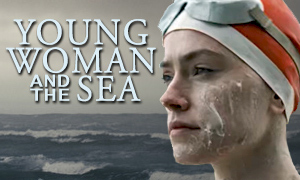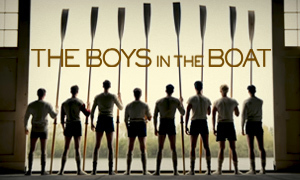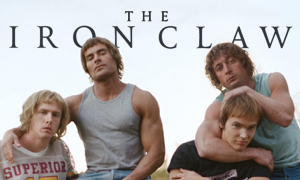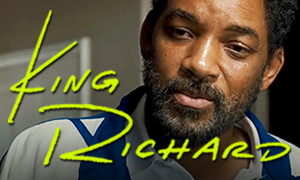Battle of the Sexes: History vs. Hollywood
| REEL FACE: | REAL FACE: |
Emma Stone
Born: November 6, 1988 Birthplace: Scottsdale, Arizona, USA | Billie Jean King
Born: November 22, 1943 Birthplace: Long Beach, California, USA |
Steve Carell
Born: August 16, 1962 Birthplace: Concord, Massachusetts, USA | Bobby Riggs
Born: February 25, 1918 Birthplace: Los Angeles, California, USA Death: October 25, 1995, Leucadia, Encinitas, California, USA (prostate cancer) |
Elisabeth Shue
Born: October 6, 1963 Birthplace: Wilmington, Delaware, USA | Priscilla Wheelan
Born: November 25, 1926 Birthplace: New York, USA Death: March 19, 1995, San Diego, California, USA College Yearbook Photo (1948) |
Sarah Silverman
Born: December 1, 1970 Birthplace: Bedford, New Hampshire, USA | Gladys Heldman
Born: May 13, 1922 Birthplace: New York City, New York, USA Death: June 22, 2003, Santa Fe, New Mexico, USA (suicide by gunshot) |
Austin Stowell
Born: December 24, 1984 Birthplace: Kensington, Connecticut, USA | Larry King
Born: January 30, 1945 Birthplace: Dayton, Ohio, USA |
Bill Pullman
Born: December 17, 1953 Birthplace: Hornell, New York, USA | Jack Kramer
Born: August 1, 1921 Birthplace: Las Vegas, Nevada, USA Death: September 12, 2009, Bel Air, California, USA (soft tissue cancer) |
Andrea Riseborough
Born: November 20, 1981 Birthplace: Newcastle upon Tyne, Northumberland, England, UK | Marilyn Barnett
Born: January 28, 1948 Death: May 5, 1997 |
Alan Cumming
Born: January 27, 1965 Birthplace: Aberfeldy, Perthshire, Scotland, UK | Ted Tinling
Born: June 23, 1910 Birthplace: Eastbourne, England, UK Death: May 23, 1990 (respiratory complications) |
Natalie Morales
Birthplace: Kendall, Florida, USA | Rosie Casals
Born: September 16, 1948 Birthplace: San Francisco, California, USA |
Eric Christian Olsen
Born: May 31, 1977 Birthplace: Eugene, Oregon, USA | Lornie Kuhle
Born: abt 1944 |
Martha MacIsaac
Born: October 11, 1984 Birthplace: Charlottetown, Prince Edward Island, Canada | Jane 'Peaches' Bartkowicz
Born: April 16, 1949 Birthplace: Hamtramck, Michigan, USA |
Was Billie Jean King in a relationship with her secretary, Marilyn Barnett?
Yes. The Battle of the Sexes true story confirms that Billie Jean King (pictured below) began an intimate relationship with her secretary in 1971. She publicly acknowledged her relationship with Marilyn Barnett in 1981 and became the first prominent American athlete to openly admit to having a gay relationship. King's admission was in part because Barnett had sued her for lifetime support, as well as the Malibu beach house where she had been staying that she said King had promised her.
Did Bobby Riggs really take more than 100 vitamin pills daily?
In a 60 Minutes interview, Bobby Riggs said that in the weeks leading up to the match he was taking roughly 135 pills three times a day. "Anything that's going to make you healthy and stronger, I'm going to go with it," said Riggs. Though he's seen taking bunches of pills at a time in the interview, it's likely that Riggs was exaggerating this as part of his act in the lead up to the Battle of the Sexes match.
Was Bobby Riggs really a former Wimbledon champion?
Yes. Fact-checking the Battle of the Sexes movie confirmed that Bobby Riggs won Wimbledon in 1939 as a 21-year-old amateur. He was ranked number one in the world (or co-No. 1) in 1939 and as a professional in 1946 and 1947. He was twice the United States singles champion, winning the US Open in 1939 and 1941.
Did Bobby Riggs take on Margaret Court before playing Billie Jean King?
Yes. The match took place at the San Diego Country Estates, 38 miles northeast of San Diego. Australian Margaret Court, 30, was a 3-time Wimbledon champion and 4-time Women's Singles champion of the United States. She was ranked number one and was the current leading money winner on the women's pro tour, playing some of her best tennis. Riggs, 55, walked onto the court and presented her with a bouquet of Mother's Day flowers. Around 5,000 spectators were on hand for the match, including celebrities like John Wayne, O.J. Simpson, Bill Cosby, and former tennis great Pancho Segura. The No. 1-ranked Court was paid $10,000 to play in the match. Riggs' lobs and drop shots proved to be too much for Margaret Court and he won 6-2, 6-1. "I didn't expect him to mix it up like that," she told reporters after the match that became known as the "Mother's Day Massacre." "We girls don't play like that." Watch Margaret Court vs. Bobby Riggs match highlights. -History.com
At a press conference before her own match with Riggs, Billie Jean King jokingly commented, "Now that Margaret went ahead and opened the door, and did such a miserable job, I think that I can beat Bobby." -CBS This Morning
What made Billie Jean King accept the offer to play in the match?
Bobby Riggs had claimed that women's tennis was far inferior to the male game and that even at 55 he could still beat any of the top female tennis players. Riggs had challenged Billie Jean King before he played Margaret Court, but she had declined. After beating Court, Riggs continued flaunting his claim and the 29-year-old King accepted his challenge, viewing the match not as a publicity stunt but rather a chance to defend women's tennis and gender equality as a whole. "I thought it would set us back 50 years if I didn't win that match," King said later. "It would ruin the women's tour and affect all women's self-esteem." Billie Jean King had been fighting for equal pay in tennis, as emphasized by her character's scenes with Jack Kramer (Bill Pullman) in the movie. She was worried after Margaret Court's loss that her efforts would endure a setback if she didn't beat Bobby Riggs herself. -History.com
A lucrative payday was also undoubtedly a factor in drawing both King and Riggs to the match, especially Riggs. A winner-take-all prize of $100,000 was at stake and it is believed that both players received at least $75,000 each in ancillary money. To hear King's own perspective on the historical match, watch PBS's American Masters: Billie Jean King.
Did Bobby Riggs really make chauvinist remarks about women belonging in the kitchen and bedroom?
Yes. Though it was somewhat obvious that, like in the movie, Riggs was a showman and his chauvinism was largely an act he put on to hype up his Battle of the Sexes match against Billy Jean King. As depicted in the Battle of the Sexes movie, during one of his real-life rants he stated, "Women belong in the bedroom and kitchen, in that order." A press conference for the much-hyped match found Riggs stating, "I'll tell you why I'll win. She's a woman and they don't have the emotional stability." King replied by calling Riggs a "creep." Riggs even took shots at King's battle for equal pay for women players, saying, "Women play about 25 percent as good as men, so they should get about 25 percent of the money men get." -History.com
Had Bobby Riggs recently gone through a divorce at the time of the match?
Yes. Bobby Riggs had been married to Priscilla Wheelan, who is portrayed by Elizabeth Shue in the movie. In researching the Battle of the Sexes true story, we discovered that Wheelan was Riggs' second wife. They were married in 1952 and divorced in 1971, less than two years before the Battle of the Sexes match. Interestingly, Riggs and Priscilla Wheelan remarried in 1991, and the two were together until his death from prostate cancer in 1995. Wheelan's family was very wealthy and the sole owner of the $20 million American Photograph Corp. After retiring from professional tennis in 1959, Riggs' was given an executive position at the company, where he remained for a number of years, despite having little motivation to succeed as a businessman.
"You marry dough, and all you have to do is mess around," said Bobby Riggs in a July 1973 Sports Illustrated interview. "I knew that. I never had any initiative or drive to be a success in business. I came into the company after having been a celebrity. I was Riggs, the star, welcomed anywhere. And now they wanted me to start at the bottom, sweeping floors or something. Well, I wouldn't do that, so there was always this undercurrent of resentment."
How many people watched the 1973 Battle of the Sexes match?
The true story reveals that an estimated worldwide television audience of 90 million (50 million in the U.S.) tuned in to watch the Battle of the Sexes match between Billie Jean King and Bobby Riggs on Thursday, September 20, 1973. The match took place at the Houston Astrodome where 30,472 were in attendance, the largest audience to ever watch a tennis match in the United States. -60 Minutes
Did Billie Jean King really enter the court on a litter carried by four bare-chested muscle men?
Yes. À la Cleopatra, Billy Jean King entered the tennis court on a feather-adorned litter carried by four muscular bare-chested men dressed like ancient slaves. Bobby Riggs similarly arrived in a ricksaw pulled by scantily dressed female models he called "Riggs' Bosom Buddies." King gave Riggs a piglet as a symbol of male chauvinism after Riggs handed her a giant Sugar Daddy lollipop (Riggs also wore a yellow Sugar Daddy jacket that he removed after the third game). King had on a pair of blue suede sneakers. Riggs planned to give the pig back to King years later after it was fully grown but he never did.
Is it possible that Bobby Riggs threw the match?
Yes. Even though Billie Jean King was behind early in the first set, she came back to win in straight sets, 6-4, 6-3, 6-3. Allegations of match-throwing were widespread, with some believing that Riggs bet against himself in order to win large sums of money. Such allegations weren't entirely unfounded. A 2013 ESPN Outside the Lines article featured a man who claimed Riggs threw the match in order to pay off gambling debts he owed to the mob. However, in that same article, Riggs' good friend and executor of his estate, Lornie Kuhle, strongly denied any such suggestion and said that Riggs had never been in debt to the mob. After hearing the claims that Riggs threw the match, Billie Jean King told ABC News, "He was trying his guts out every point."
Did Billie Jean King and Bobby Riggs become friends?
Yes. They never really hated each other before the match and became quite close after. "I really respected him and liked him," King said in an ABC News interview. "He was one of my heroes. I stayed in touch with Bobby. The night before he passed away I talked to him. ... I told him I loved him and he told me he loved me, and I think he was proud of himself." King said that Riggs had many layers to his character, and like her own inner struggle with her sexual identity at the time, Riggs had a lot of turmoil going on in his life too, including having been recently divorced.
Have any other movies been made about the Battle of the Sexes match?
Yes. In exploring the Battle of the Sexes true story, we learned that a made-for-television movie titled When Billie Beat Bobby aired on ABC in 2001. It starred Holly Hunter as Billie Jean King and Ron Silver as Bobby Riggs. A documentary, also titled Battle of the Sexes, was released by New Black Films in 2013.
What does the real Billie Jean King think of the movie?
"Every time I see it I'm just in awe of each of the actors and what they brought to it," Billie Jean King told The Hollywood Reporter. "It was just so authentic, and so real, and accurate." King worked with Emma Stone and the filmmakers in order to help them get it right.
Have any other male/female Battle of the Sexes type matches been played?
Yes. While fact-checking the Battle of the Sexes movie, we learned that there have been quite a few notable matches of male vs. female tennis players, dating all the way back to 1888 when the men's Wimbledon champion, Ernest Renshaw, took on the ladies' champion, Lottie Dod. Dod started each game with a 30-0 advantage but lost in three sets (2-6, 7-5, 7-5).
One of the more notable modern-day male vs. female matches was the 1992 Navratilova v Connors match, where a 40-year-old Jimmy Connors took on Martina Navratilova, 35. Connors was only allowed one serve per point and Navratilova was also given the advantage of being able to hit into half of the doubles alleys. Regardless, Connors claimed victory 7-5, 6-2.
In 1998, the Williams sisters each individually took on German Karsten Braasch, having claimed they could beat any male player outside the top 200. Braasch, then-ranked 203, beat Serena 6-1 and beat Venus 6-2. After, the Williams sisters modified their claim to any male player outside the top 350. -The Observer
Bobby Riggs & Billie Jean King Interviews and Related Videos
Below we serve up a selection of videos, including a Bobby Riggs interview from before the 1973 Battle of the Sexes match. In another video, Billie Jean King is interviewed and looks back on the match 40 years later, discussing her enduring friendship with Riggs.
Link-to-Learn More:







